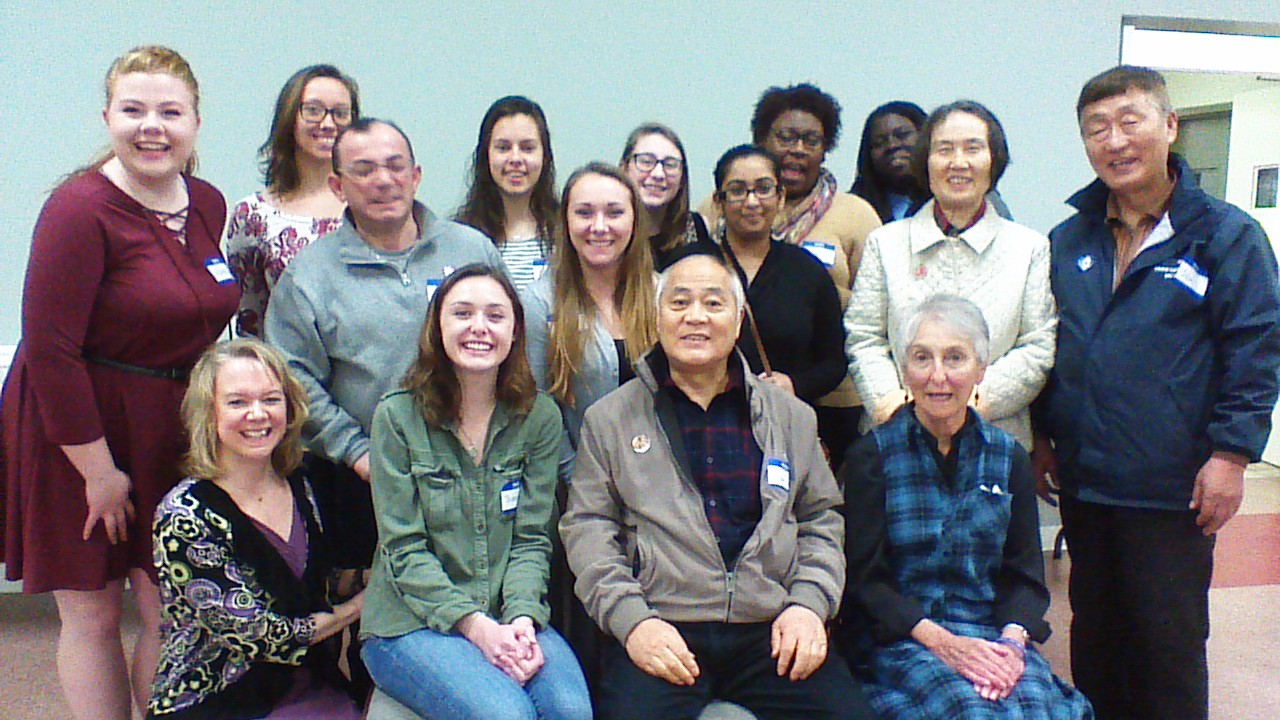The Benefits of Volunteering: Volunteering 2 hours a week helps ease loneliness, study finds

Time and time again we hear stories about the powerful effects that volunteer work has on so many of the people involved with our organization. Many literacy groups have ongoing needs for volunteers and welcome people with open arms. If you are interested in becoming a literacy volunteer in New York State, visit the Providers section of our website to find a location near you.
A recent blog post by A. Pawlowski at TODAY.com, praises the value of volunteerism:
When loneliness strikes, volunteering can soothe a soul.
People who were lonely after losing a spouse felt better if they volunteered two hours or more a week, a recent study published in the Journals of Gerontology: Social Sciences found.
The research looked at widowed people over 51, but the results could apply to all age groups and other situations, said lead author Dawn Carr, assistant professor of sociology at Florida State University, noting lots of evidence suggests volunteering is beneficial. It makes you feel better, but it's also good for you.
“We face these important turning points in our lives where some big event occurs and we have to make a decision about ‘How am I going to recover and move on?’” Carr told TODAY.
“Any time we’re faced with particularly negative events — where we’re at risk for experiencing loneliness, regardless of age — it’s likely an activity like this would be beneficial, helping us reconnect with things that matter and with people.”
They key was “higher intensity volunteering,” which the study defined as volunteering 100 or more hours per year. It didn’t matter what the activity was, just as long as people made it part of their regular routine.
The health implications could be significant. Many people feel lonely temporarily, but chronic loneliness can have serious health consequences including accelerated dementia, physical decline and increases in chronic depression, Carr said. People who are lonely report more severe symptoms and feel worse when battling a cold than less-lonely individuals, a 2017 study found. The mind and body are connected in many ways, so when faced with an illness, divorce or other traumatic event, lonely people fare worse than others, said co-author Christopher Fagundes, assistant professor of psychology at Rice University in Houston.
Past research shows about one in five people over 50 are lonely, and Carr believed that’s comparable to the younger population.
“It’s a growing problem for people of all ages,” she said.
For the paper, Carr and her co-authors analyzed data from more than 5,000 adults over 51 drawn from the Health and Retirement Study, which followed up with subjects every two years and measured their loneliness levels and volunteering activity, among other things.
Not surprisingly, people who became widowed were more intensely lonely than those who were still married. Losing a spouse is one of the most difficult transitions people face in later life, the study notes.
But the widows’ and widowers’ loneliness declined when they started volunteering, though it had to be two or more hours a week to make a difference — devoting less time than that didn’t provide the same benefits.
“These people recovered really quickly… and that’s impressive,” Carr said. “It’s important to go out and actively reach out and do something for someone else — that has lots of benefits to our emotional and psychological health.”
Here are a few tips to get you started:
• Try to make volunteering part of your regular routine. Integrating it into your life will provide the most benefits, Carr said. If that’s not feasible, any way you can fit it in will be useful.
• Find activities where you feel a sense of meaning and purpose, and connect to your interests. Do you want to cuddle babies? Create a community garden? Serve meals to the homeless?
• People who are highly introverted might struggle with volunteering if it involves lots of strangers. If that’s you, try to find a cause or group through a mutual friend who may ease you into the activity, Carr recommended.




